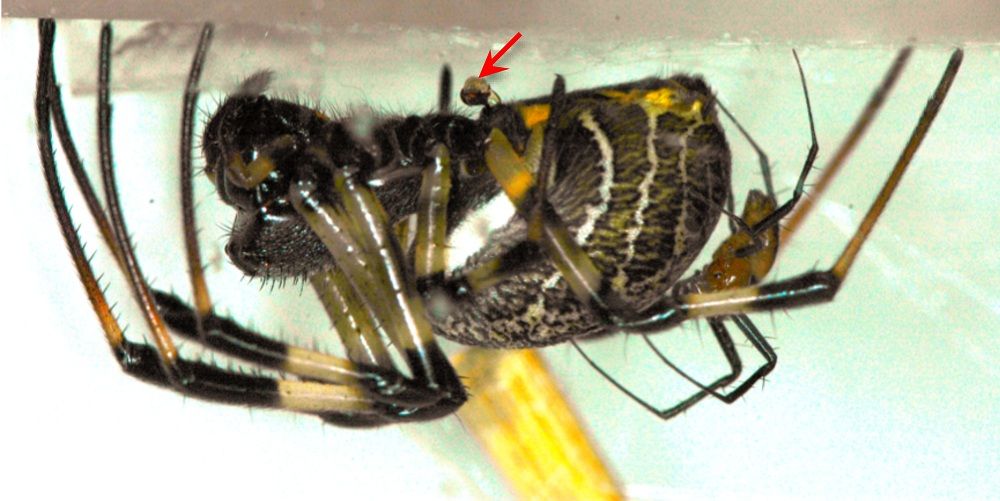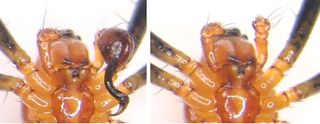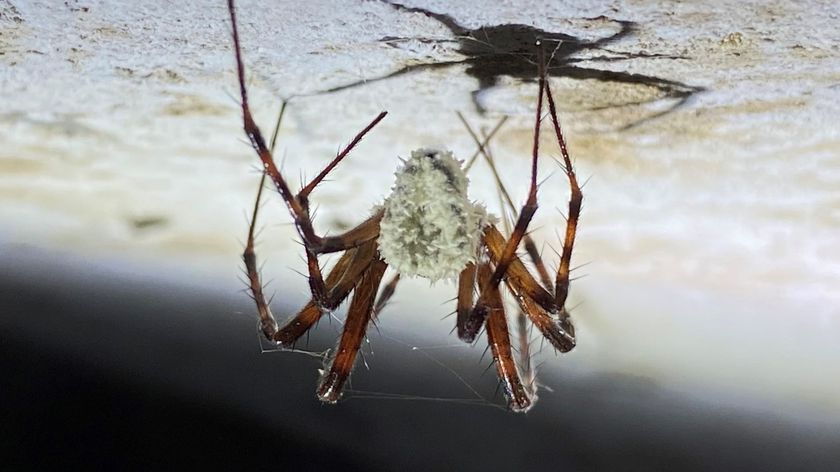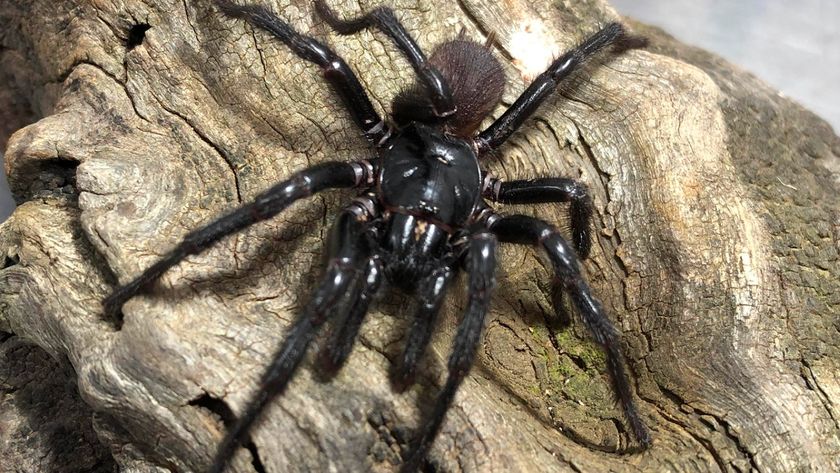Male Spider Ditches Penis, Gains Fighting Power

After leaving its detachable penis to finish inseminating the female, the male orb-web spider fights to the death to protect the impregnated gal. Without the extra weight of its sexual organs, this spider can outlast its competition, new research has found.
Though the spider loses its palp (the arachnid equivalent of a penis, and the male orb-web spider has two), it usually wins the fight to protect his mate from other males.
"Prior work has demonstrated that eunuch spiders are superior fighters, we here pinpoint a mechanism that enables eunuch's greater endurance," the researchers write in their paper, published June 13 in the journal Biology Letters. "Our present results imply that palp weight poses significant physical costs to males."
Risky sex
Several types of male spiders and other insects engage in risky sex, which, in the orb-web spider Nephilengys malabarensis, ends in about 75 percent of them being eaten by the female. But, even if they escape their mate's grasp, they lose one or both of their palps along the way.
The broken-off organ efficiently plugs the female's genital opening, making sure other males can't fertilize her; a study reported in January that these detached palps continue to pump sperm into the female. Sometimes only one of her two openings, called the epigynum, gets plugged, meaning there's room for another male to squeeze in and inseminate her. [The Weirdest Animal Penises]
If they survive the female's cannibalism, the male spiders stay nearby, guarding her from other males that might try to dislodge the plap plug and inseminate their female. Interestingly, these eunuch males usually win fights with other, intact, males.
Sign up for the Live Science daily newsletter now
Get the world’s most fascinating discoveries delivered straight to your inbox.
Detachable penis
The researchers wondered if there were any other benefits

to leaving the palp behind in the female. So, they took male orb-web spiders and amputated none, one or both of their palps, then ran them around the lab until they were exhausted (when they wouldn't move after five nudges with a paintbrush).
Removing one palp reduced the spider's body weight by 4 percent, removing both reduced their weight by 9 percent. In turn, their endurance increased 32 percent in half-eunuchs and 80 percent in full eunuchs. This supports what the researchers called a "gloves-off" mating strategy. The spiders have nothing to live for other than protecting their potential offspring. They are able to fend off other males because they are lighter in weight after dispensing their palps.
"Increased endurance probably enables eunuchs to perform better in the contests with intact rivals," the authors write. "Mating biology of N. malabarensis males consists of a plethora of mate-guarding and male–male agonistic behaviors that are physically demanding; an elevated endurance will hence put eunuchs at an advantage over intact rivals."
The study will be published tomorrow (June 13) in the journal Biology Letters.
Follow Jennifer Welsh on Twitter @microbelover or LiveScience @livescience. We're also on Facebook & Google+.
Jennifer Welsh is a Connecticut-based science writer and editor and a regular contributor to Live Science. She also has several years of bench work in cancer research and anti-viral drug discovery under her belt. She has previously written for Science News, VerywellHealth, The Scientist, Discover Magazine, WIRED Science, and Business Insider.
Most Popular





